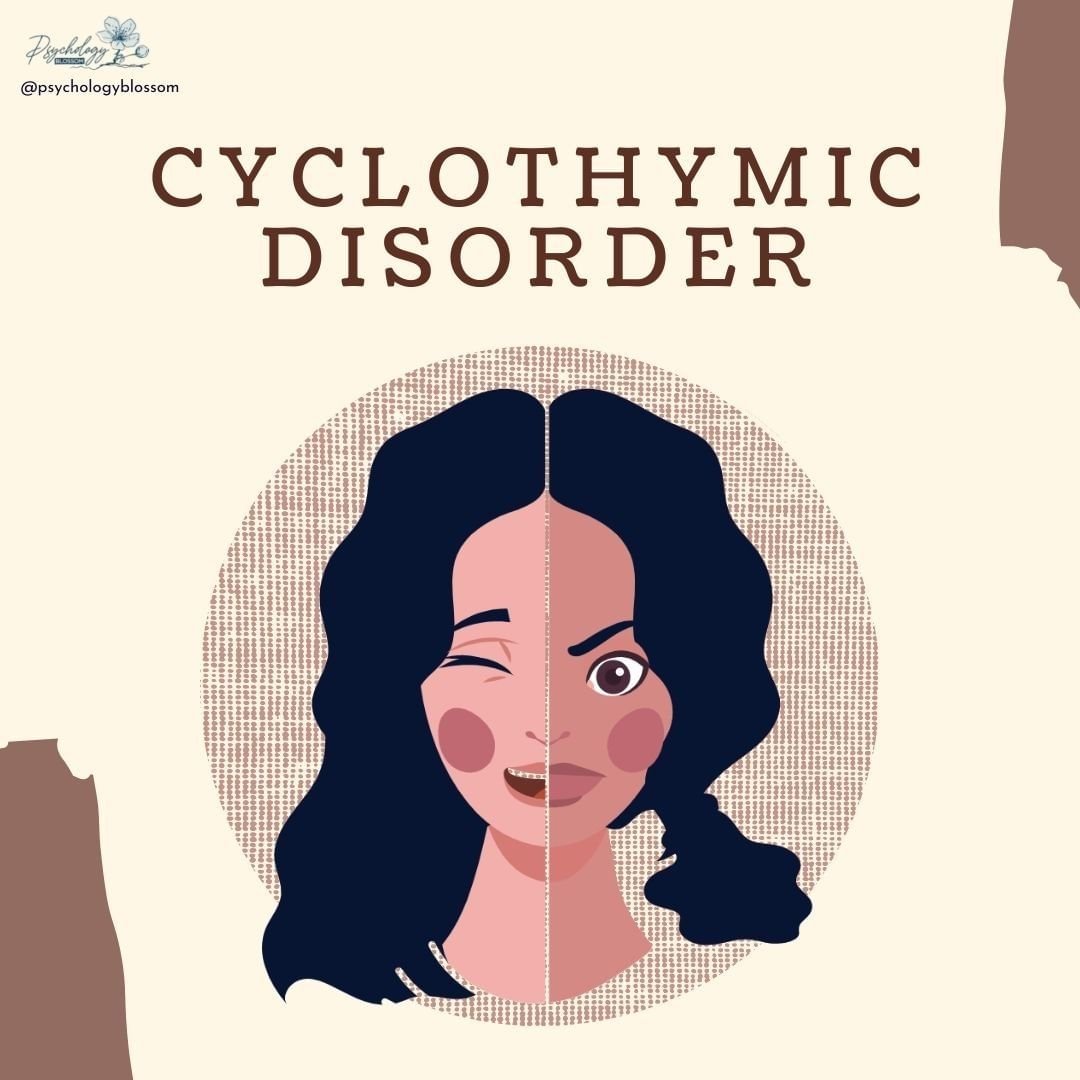Cyclothymic Disorder: Understanding Mood Shifts
Cyclothymic Disorder is a type of mood disorder that resembles Bipolar Disorder, but with less severe symptoms. Unlike Bipolar Disorder, which involves intense manic and depressive episodes, Cyclothymic Disorder features shorter, less extreme mood shifts between hypomania and mild depression. It is estimated that 0.4% to 1% of the population experiences this condition at some point in their lives. Many individuals may not even notice their fluctuations, as some episodes are brief and subtle, while others create noticeable distress and disruption in daily functioning.
Just as the ocean cycles between high and low tides, Cyclothymic Disorder creates a similar rhythm in emotions. During a “high tide,” individuals may feel euphoric, overly confident, or impulsive, sometimes engaging in risky behaviours such as gambling or substance use. During a “low tide,” emotions can shift to sadness, hopelessness, or even suicidal thoughts, often accompanied by fatigue and social withdrawal. These mood shifts, while less intense than those in Bipolar Disorder, can still impact relationships, work, and self-esteem.
Symptoms of Cyclothymic Disorder
Signs of Cyclothymic Disorder often begin in childhood, with children displaying emotional regulation difficulties, aggression, or hostility. Because it starts early, the disorder tends to be long-term, creating challenges in education, employment, and relationships. Studies have linked cyclothymia to higher rates of divorce, job instability, substance abuse, and interpersonal conflicts. People often struggle with maintaining stable relationships and may experience isolation as a result.
The two primary states of Cyclothymic Disorder are hypomania and depression. Unlike full mania, hypomania is less severe but still disruptive, and depressive episodes are milder than those seen in Major Depressive Disorder. Importantly, there is no fixed cycle pattern, meaning individuals may shift unpredictably between these states.
✽ Symptoms of Hypomania
- Extreme optimism and heightened energy
- Inflated self-esteem and feelings of superiority
- Euphoria and increased sociability
- Excessive physical activity or restlessness
- Irritability or agitation
✽ Symptoms of Depression
- Persistent sadness or emptiness
- Fatigue and lack of energy
- Difficulty concentrating
- Restlessness or agitation
- Disturbed sleep (insomnia or oversleeping)
Causes and Risk Factors
The exact cause of Cyclothymic Disorder remains unclear, but research suggests a combination of genetic, biological, and environmental factors. Family studies show that cyclothymia has a strong hereditary component, with twin studies indicating a 57% likelihood of both twins being affected. Trauma and stressful life events can also increase vulnerability to the disorder.
Environmental triggers, such as childhood neglect, family conflict, or exposure to trauma, may contribute to the onset of symptoms. The disorder is most commonly diagnosed in teenage and early adult years, though early signs may appear in childhood.
Treatment for Cyclothymic Disorder
Many individuals with Cyclothymic Disorder may not initially seek treatment because their hypomanic episodes feel energising or even pleasurable. However, untreated cyclothymia can progress into full Bipolar Disorder, which carries greater risks and severity. Treatment is essential for reducing emotional instability and improving quality of life.
Medication such as mood stabilisers, anti-anxiety drugs, or antidepressants may be prescribed to help balance mood fluctuations. Psychotherapy is also a cornerstone of treatment, particularly approaches like Cognitive Behavioural Therapy (CBT) and Well-Being Therapy, which focus on developing healthy coping strategies and restructuring negative thought patterns.
Psychoeducation plays a vital role in helping individuals understand their condition, recognise emotional triggers, and develop strategies to prevent relapses. With proper treatment, many individuals with Cyclothymic Disorder can maintain stability and lead fulfilling lives.
Cyclothymic Disorder (cyclothymia) doesn’t mean you’re unreliable—it means your mood system is sensitive and deserves steady support. Start with kindness to yourself and simple structures: regular sleep and wake times, balanced meals, movement you enjoy, and reduced alcohol/caffeine. Track patterns with a brief daily mood log so you can spot early signs and use a plan: when energy climbs, channel it into focused, time-boxed tasks and wind-down routines; when mood dips, use micro-steps, sunlight, and gentle connection.
Therapies like CBT, mindfulness, and Interpersonal and Social Rhythm Therapy (IPSRT) help stabilise rhythms and build coping skills. A psychiatrist can discuss medication if appropriate. Share a crisis plan with trusted people. Progress is gradual but real—stability grows from small, repeatable wins.
We recommend This Video to those who want to learn more about Cyclothymic Disorder and its treatments.
